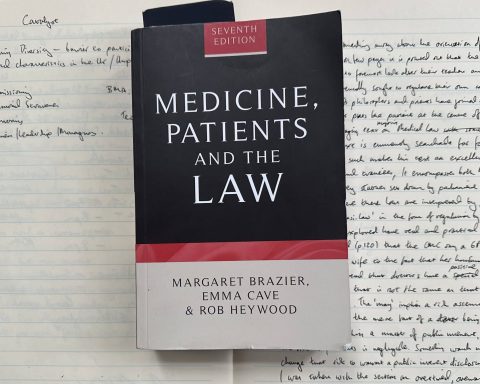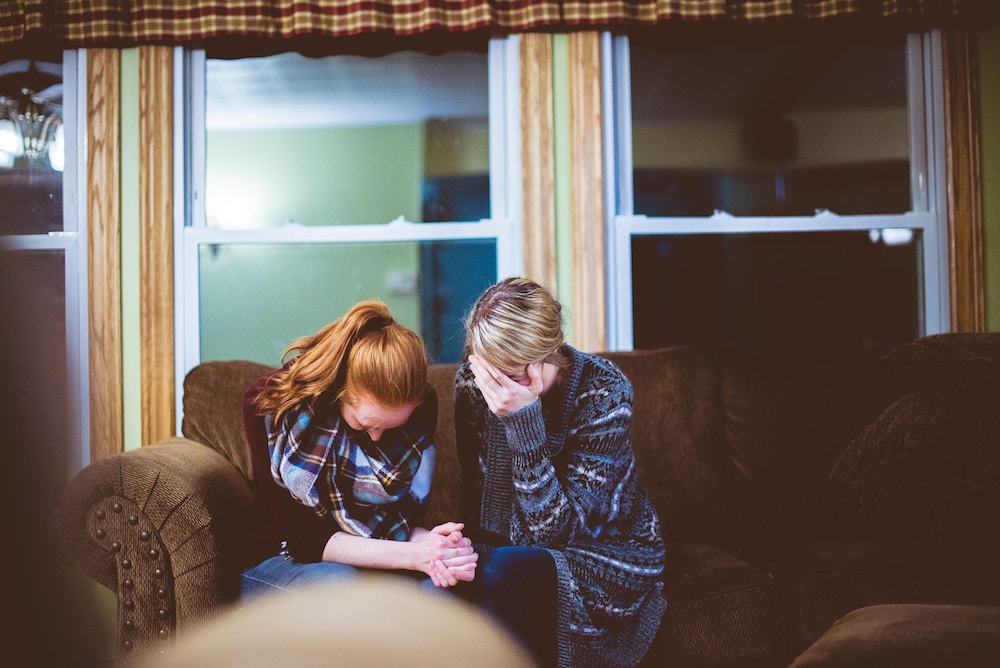 Lily Lamb is a salaried GP for Northumbria Primary Care. She is on RCGP Council as representative for North East England.
Lily Lamb is a salaried GP for Northumbria Primary Care. She is on RCGP Council as representative for North East England.
As I write, the UK is moving towards the legalisation of assisted dying. Bills have progressed in Parliaments in England and Wales, Scotland, the Isle of Man and Jersey. Doctors will play a crucial part in delivering the new assisted dying services and ensuring the required safeguards are met; some will do so without discomfort, glad to help patients have some degree of autonomy at the end of life, others, myself included, will feel anxious about the future.
I fear the risk of the legalisation of assisted dying to the existing and future GP workforce. We are arguably the most likely profession to provide assisted dying services, if, as proposed, they are delivered as part of NHS care. After all, we are typically the first point of contact for patients, we’re accessible, we’re based in the community, we have the relational continuity and trust needed to have these challenging conversations and we are used to visiting them in their homes. We have regular involvement in end of life care alongside our community nursing teams.
We are arguably the most likely profession to provide assisted dying services, if, as proposed, they are delivered as part of NHS care.
Many people who become GPs do so out of a desire to help people and reduce suffering. I remember being moved as a first-year medical student hearing William Osler’s words, that our role as a doctor is ‘to cure sometimes, relieve often and to comfort always’. This mantra has helped me so many times in my work as a GP. It is not uncommon for us to be unable to find a cure, sometimes we can’t reduce suffering, but we can do our best to provide comfort in the darkest of times. I have seen many people in despair, with seemingly intolerable suffering and loss of hope, I have walked alongside them in those times of darkness, sometimes when no one else was there for them. I have seen first-hand the impact this doctor-patient relationship can have; this to me is the true meaning of compassion, and my role is to support their inherent dignity as human beings. When a patient tells me they are suicidal, my job is to do all that I can to help them and prevent that death. When they tell me they have had enough of fighting terminal illness my job is to focus on their palliative needs, what matters most to them at the end of life and to do everything I can to support and bring comfort to them. This includes seeking specialist input when needed and making sure they have appropriate doses of the powerful medications we use to manage symptoms at the end of life.
If GPs become the instrument of assisted dying, I fear that the doctor-patient relationship will be fundamentally altered. There are people (often from marginalised communities) who already struggle to trust us, it is plausible that having this ‘treatment’ option will serve to further erode trust, as people will fear assisted dying being proposed as a course of action. Currently, a critical part of our role is suicide prevention, how will we walk the tightrope between providing and preventing suicide? Will we be able to reliably exclude depression in patients who have a terminal illness and request an assisted death? Will coercion be obvious and detectable, or will it be more subtle, as abuse in the elderly often is.
We know that the GP profession is in crisis and there are significant recruitment and retention issues. Two in five GPs intend to leave the profession in the next five years, a third are at high risk of burnout and over 70% of GPs report their job to be very or extremely stressful.1-3 Medical students remain reluctant to choose the profession, in part because they witness how difficult the job is to sustain, and many are exposed to denigration of general practice during their undergraduate and postgraduate training.4
I wonder what impact the addition of assisted dying provision will have on this fragile existing and future GP workforce? How it will feel to be that GP, motivated by a desire to help, arriving at their patient’s home to deliver their death, preparing a concoction of powerful medication for the patient to self-administer (experience from other countries suggests this may include benzodiazepines, barbituates, neuromuscular blocking agents, opioids and cardiotoxic agents) and offer this to the patient to drink, or prepare a device through which they can self-administer, then waiting with the family for death. Unfortunately, these deaths will not always be peaceful and suffering will not always be avoided, reported complication rates vary but are encountered in up to 15% of deaths.5 The patient may experience difficulty swallowing the drugs, vomiting and a prolonged dying process (in Oregon 8% of deaths took over 6 hours).5 Once death does occur the GP will then complete the paperwork and support the bereaved family. This whole process is likely to be lengthy and reports from Australia suggest it can take up to 60 hours of doctor work from the patient requesting assisted suicide through to the administration following their death.6
How will that doctor feel after going through that process? Will there be provision for them to be supported and debriefed or will they just plough on with their afternoon surgery? There is evidence from other parts of the world that involvement in assisted dying takes its toll on doctor’s mental health: 30-50% of doctors who participated in assisted dying described emotional burden or discomfort in participation, with significant and ongoing adverse personal impact reported by 15-20% of individuals.7 Those GPs with a conscientious objection to participation should be protected from this emotional impact, but what of those who don’t conscientiously object? What of those who are fearful of exercising a conscientious objection because their jobs are insecure and they perceive risk to their future career if they don’t participate in all aspects of the GP role?
Doctors are repeatedly referred to in the proposed legislation, and they are clearly essential in delivering the assisted dying process, but has anyone really considered the impact on those doctors? Have we considered the emotional suffering they may experience from doing their duty? And what of the suffering to patients if the GP workforce further contracts due to this additional demand on individual GPs, leading to a deterioration in their mental health and attrition from the career? What if medical students are further deterred from the career by the idea of being involved in assisted dying as part of their work? Already, too many people are not able to access palliative care through their GP as they reach end of life.8 Do we really believe that GPs, in their overstretched and burnt-out state, are in a place to deliver on the ‘strictest’ safeguards that our Members of Parliament state will be ‘the best in the world’?
If the law changes and assisted dying becomes one of the duties of a GP, a Rubicon will be crossed which carries clear risk of harm to the profession and the vulnerable patients we care for. I hope that those who represent GPs in the next legislative stages recognise the fragility of the GP workforce and make the case with conviction to keep assisted dying out of general practice.
References
- The Health Foundation. Stressed and overworked 2023 11/10/24. Available from: https://www.health.org.uk/publications/reports/stressed-and-overworked.
- General Medical Council. The state of medical education and practice in the UK2021 11/10/24.
- Royal College of General Practitioners. RCGP warns of ‘mass exodus’ if retention of GPs isn’t prioritised2024 25/9/2024. Available from: https://www.rcgp.org.uk/News/mass-exodus-retention-gps-prioritised.
- Alberti H, Banner K, Collingwood H, Merritt K. ‘Just a GP’: a mixed method study of undermining of general practice as a career choice in the UK. BMJ Open.7(11):e018520.
- Worthington A, Finlay I, Regnard C. Efficacy and safety of drugs used for ‘assisted dying’. British Medical Bulletin. 2022;142(1):15-22.
- Rutherford J, Willmott L, White BP. What the Doctor Would Prescribe: Physician Experiences of Providing Voluntary Assisted Dying in Australia. Omega (Westport). 2023;87(4):1063-87.
- Kelly B, Handley T, Kissane D, Vamos M, Attia J. “An indelible mark” the response to participation in euthanasia and physician-assisted suicide among doctors: A review of research findings. Palliative and Supportive Care. 2020;18(1):82-8.
- Better End of Life. Time to care: findings from a nationally representative survey of experiences at the end of life in England and Wales2024 11/10/24. Available from: https://www.mariecurie.org.uk/globalassets/media/documents/policy/beol-reports-2024/beol-2024-time-to-care-report.pdf.
Deputy Editor’s note: Collegial discussion of the issues is encouraged. See also –
- Lawson E, Papanikitas A. GPs and assisted dying. _Br J Gen Pract_ 2025; DOI: https://doi.org/10.3399/bjgp25X740409
- Everington SS. The assisted dying debate: supporting GPs in a changing landscape. Br J Gen Pract. 2024 Feb 29;74(740):106-107. doi: 10.3399/bjgp24X736485. PMID: 39222413; PMCID: PMC10904124
Featured photo by Cherry Laithang on Unsplash










Thank you for this well-considered article, outlining many of the same concerns that I have. I’m glad that I will have retired before this Bill becomes an Act, but I’m concerned for my colleagues and their patients. Interestingly, you have identified many of the same issues that a very worried, elderly, non-medical friend was discussing with me recently. I will print this article and show it to him. BWs.
Thanks Lily. Excellent article and totally agree with you
The experience in The Netherlands, as a warning
https://committees.parliament.uk/writtenevidence/117110/pdf/
Thank you for your brilliant summary.I share all the concerns you raise.I hope those considering the bill read it.
Spot on!
Best wishes
David